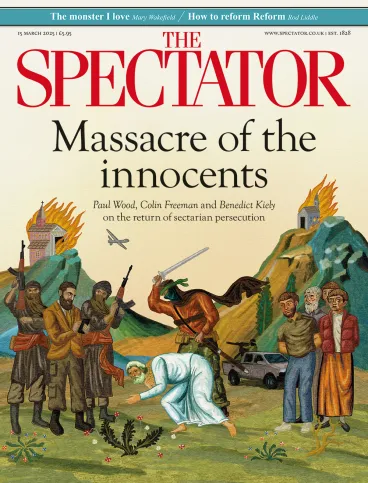
Harry Ritchie has narrated this article for you to listen to.
It is one of academia’s horrible ironies that linguistics, the subject devoted to human communication, has managed to communicate nothing about its many startling and fundamental discoveries to the world outside its university departments. So any book such as this linguistic tour of some of the world’s exotic, hidden and endangered languages is to be welcomed with sobbing gratitude.
Almost all the languages Lorna Gibb describes are staples of linguistics course books, but I’m assuming each will come as startling news to a general readership. One which was new to me was the sign language used by native north Americans throughout the Great Plains, and thanks to Gibb, I also now know how to interpret their smoke signals: two puffs = all is well; three puffs = help!; four puffs = stranded whale.
As only linguists would expect, this tour of the linguistically weird and wonderful soon stops off at one of the lesser visited Canary Islands, Gomera, home to the whistled language known as El Silbo. It has a range of more than a kilometre (about ten times that of a shout), and its differing whistles remarkably convey not only phonemes but grammatical features such as the tenses of verbs and the gender of nouns.
Linguists will also be unshocked to see that another of Gibb’s destinations is the group of Khoisan languages in southern Africa which use various click sounds. I say various – Nama has 20 different clicks, almost all indistinguishable to our ears but as obvious to a Naman speaker as an ‘f’ is from a ‘p’ to us. So that, for example, in Khoikhoi, ‘lam’ can denote verbs meaning ‘to demolish’ and ‘to light’, the adjective ‘exclusive’ and the noun ‘clap’, depending on the different click indicated by that ‘l’. Shout out to !Xoo, a Khoisan language with a world record of 118 separate vowels and consonants, including the first two in its name for itself – a vigorous popping sound followed by the ‘ch’ in Scottish ‘loch’.
And so to yet another language that is big only in linguistics, Dyirbal, spoken in north Queensland and boasting a unique system of noun classes that gave George Lakoff the title of his book, Women, Fire and Dangerous Things. The last I heard of it ten years ago, Dyirbal was hanging on with a handful of speakers, but Gibb brings the saddening news that its last native speaker is now gone and the language is officially extinct.
There is, alas, nothing unusual in that. We are in the middle of an unstoppable process of language extinction. There are around 7,000 languages currently spoken on this planet and by the end of the century only 500 will have survived. A few heroic ethnolinguists are currently racing round the Amazon rainforest and Papua New Guinea with their notebooks and tape recorders, but the vast majority of those 6,500 mostly oral languages are doomed to vanish, leaving no trace of themselves.
As the author explains, this is not just vaguely regrettable but a significant loss, each departing language taking with it not only its charming quirks of syntax or phonetics but its specialist knowledge of local flora and fauna. A thought-provoking 90 per cent of the Amazon’s medicinal plants are linguistically unique, having names and known applications only in one local language.
Clearly of a sunnier temperament than me, Gibb tries to accentuate the positive, celebrating various apps and chatrooms that are trying to preserve endangered languages and citing the examples of the revival of Hebrew, the growing campaign to assert Maori as the national language of New Zealand, and the efforts to keep Scottish Gaelic alive. In the final pages, she eventually takes a brief stop-off at herself, as a dialect-speaking and working-class girl from the estates of Glasgow’s hinterland who made her way up the educational ladder until she found herself in the linguistically foreign territory of middle-class London.
I could have done with a lot more of her autobiographical material, but then the culture as a whole badly needs that kind of testimony. That’s because English is the only language of those 7,000 whose dialects are divided not just by geography but also by class. The result is that working-class speakers of perfectly respectable regional dialects suffer an unforgiving discrimination – unless they immediately achieve 100 per cent fluency in the middle-class dialect, they will fail.
Extremely usefully, an appendix offers a beginner’s guide to some of the key topics and terms of linguistics. In any other subject, the information would be laughably basic (‘the universe is very big and stars are other suns’), but such is our collective culture’s howling ignorance of anything to do with this subject, these are 22 pages of sorely needed explanations.







Comments